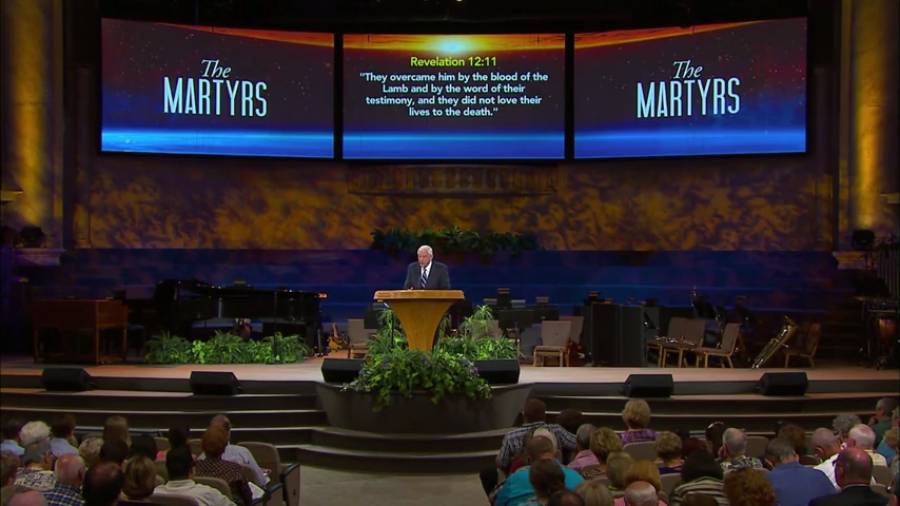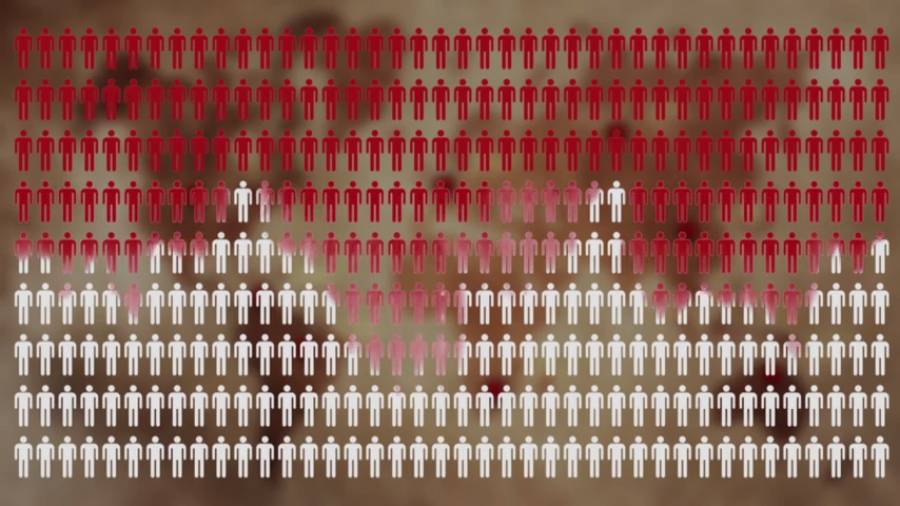Though the early church was filled with thousands of zealous followers of Christ, only a dozen were known as the original band of twelve. Jesus chose these men after spending a night in prayer. He designated them "disciples" (learners) and, later, "apostles" (missionaries—those sent out). As disciples, they followed Him, sat at His feet, and learned of His person and work. As apostles, they went out in His power as agents of the Gospel, going to the ends of the earth to profess the risen King. It wasn't an easy life. In the book of Acts, they were threatened, flogged, persecuted, and driven from Jerusalem. According to Origen of Alexandria (ca 185–254), they divided the world among them and fanned out, taking the Gospel east, west, north, and south, willing to suffer and die for their faith.
There are four lists of the twelve given in the Bible—one each in Matthew, Mark, Luke, and Acts. In all four lists, Peter is mentioned first, and Judas Iscariot is mentioned last. Between Peter and Judas, we have some variations in the order and even in the names. A handful of stories about Peter, James, and John are recorded in the book of Acts (along with Paul, who wasn't among the original twelve). But despite being called the "Acts of the Apostles," this book bypasses the record of most of the others. The writer, Luke, kept to his agenda of explaining how the Gospel traveled from Jerusalem to Rome, which was the geopolitical center of the world. The stories of the other apostles have come down to us mainly from the church fathers or from early historians like Eusebius of Caesarea.
Some of the apostles left us with better sets of traditions than others. But none of them (except Judas Iscariot, who was replaced by Matthias in Acts 1:23–26) ever denied the faith, questioned the Resurrection of Christ, or backtracked on their commitment to global evangelism. They were agents of the Gospel, professing a risen King, spreading a message that changed the world forever. All of us are their descendants, and we should emulate their example of missionary and evangelistic zeal.
Who were these twelve agents, and what happened to them?
Peter
Visitors to the ruins of the Galilean town of Capernaum can see the foundations of Peter's house. After the Resurrection of Christ, Peter was seldom home. He traveled widely for the sake of the Gospel, taking his wife along (1 Corinthians 9:5). According to Eusebius and others, at the end of his life Peter shouted a message of encouragement to his wife as she was led away to execution, then he himself died in Rome by being crucified upside down.
James
The son of Zebedee and the brother of John, James became the first apostle to die a martyr's death. He was murdered in Jerusalem by King Herod Agrippa I about the year A.D. 44. The account of his death is preserved in Acts 12:1–2: "[Herod] killed James the brother of John with the sword."
John
The brother of James and the author of the fourth Gospel, John was apparently the only apostle who avoided a martyr's death. However, that doesn't mean he escaped persecution. After the fall of Jerusalem, his base of operations was centered in Ephesus. At one point he was exiled to a penal colony on Patmos Island where he received the book of Revelation. He passed away in Ephesus at an advanced age, and visitors to the ruins of Ephesus today can visit his purported gravesite.
Andrew
He was the apostle who was always witnessing. Every time we see him in the Gospels, he was bringing someone to Christ. According to Eusebius, Andrew became a missionary to Scythia, which is an area in modern–day southern Russia around the Black Sea (see Colossians 3:11). Some traditions say he was crucified in A.D. 69 on an X–shaped cross (now called a Saint Andrew's Cross), and that he languished three days before dying.
Philip
He hailed from the town of Bethsaida, but where he subsequently traveled and how he did is not certain. On July 27, 2011, archaeologists in Turkey announced they had unearthed a burial site in Hierapolis (not far from Colossae and Laodicea) bearing ancient inscriptions indicating it was Philip's tomb. This corresponds to early traditions about his ministry and death. We don't know how Philip died, but according to some traditions he was stripped, pierced through the thighs (or ankles), hung upside down (perhaps on a cross), and stoned to death.
Bartholomew
He was from Cana, the scene of our Lord's first miracle (and he was also likely known as Nathanael). Except for references in the fourth Gospel, little is known of Bartholomew's life and ministry. Different traditions have him going various places and dying various deaths, but nothing can be determined with certainty. The best reference is from Eusebius, who gave us a tantalizing tale about an Egyptian missionary who, about the year A.D. 180, went eastward to evangelize regions between modern–day Turkey and India, perhaps centering on Armenia. Arriving at his destination he found that the Gospel of Matthew had gotten there first, delivered, it was said, years before by Bartholomew. To this day, the Armenian Church traces itself back to Bartholomew and maintains a belief that he died by being flayed alive.
Thomas
With him, we may have sounder traditions. William Steuart McBirnie, in his book The Search for the Twelve Apostles, says, "[We] may rather confidently reconstruct the actual missionary journeys of Thomas. In fact, we really know more about St. Thomas than we do about almost any other apostle with the exception of John and Peter."1 As Peter and Paul were going westward into Europe, Thomas was apparently going eastward into India. Modern–day Christians in India claim Thomas as the one who first brought the Gospel to their land. He was reportedly speared to death and buried near the city of Madras. The mountainside where he spent his last days is now a national shrine to his memory, overlooking (perhaps appropriately) the international airport at Madras.
Matthew
He was the writer of the first Gospel, and he carried a deep burden in his heart for Jewish evangelism. His geographical field of evangelism is uncertain, but many traditions point to northeast Africa, between Egypt and Ethiopia, where he especially focused his efforts on reaching the Jews of the Diaspora. It's thought he died somewhere in this region by martyrdom.
James
The son of Alphaeus, (perhaps also known as James the Less) is the apostle of whom we know the least, which is a reason to like this man. Not all of us are famous; not all of us leave a traceable, visible legacy. Yet we're still vital to the plan and purposes of God, known to Him, loved by Him, and used of Him as His disciples. Like James, many of us are apostles of obscurity whose work is recorded in heaven rather than on earth. We do have a hint about his martyrdom, however. According to Josephus, he died by being stoned and clubbed.
Thaddeus
Otherwise known as Jude, Thaddeus apparently worked in cooperation with Bartholomew and Thomas in reaching Armenia and India. He is said to have been martyred near the modern–day city of Tabriz in northern Iran.
Simon
The zealot, Simon's story is a confusing mixture of tales and traditions. While some records speak of his going into Syria and Iran, other traditions speak of his westward ministry into Spain and Britain. One source claims he was crucified by the Romans in Caistor, Lincolnshire, Britain, and buried there on May 10, A.D. 61.
Matthias
He replaced Judas Iscariot and is believed to have evangelized the regions of the east. Various traditions place him in various places, but nearly all of them end with his martyrdom.
We can't be dogmatic about the exact fate of the apostles, but their legacy is unmistakable. They were like the heroes listed in Hebrews 11—men of whom the world was not worthy.
In the future we will have the final generation of faithful witnesses, but between the twelve and the 144,000, we have … well, us. The original twelve teach us there is a cost to following Jesus and to being an agent of the Gospel. It's not easy to serve the risen King or spread the Gospel through the world. We encounter many dangers, toils, and snares, but we're in good company. We're joining the heroes of the ages as we seek to change the world for Christ.
We are today's agents of the Gospel who gladly profess Christ as our risen King.
1 William Steuart McBirnie, The Search for the Twelve Apostles, Revised ed. (Carol Stream, IL: Tyndale, 1973), chapter 9.













